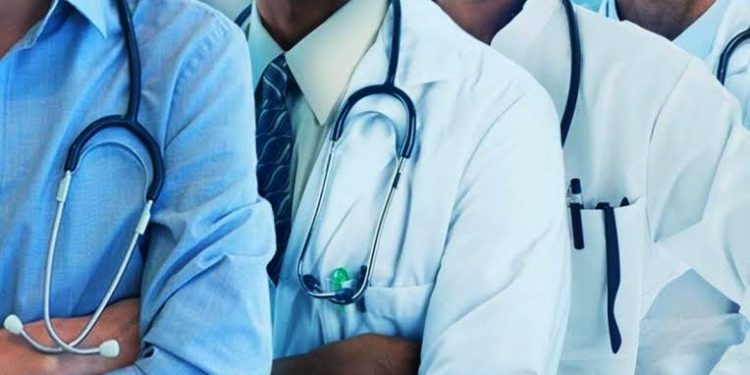By John Ikani
The Federal Government of Nigeria has insisted that the nation cannot afford the World Health Organisation (WHO) ratio of one doctor to 600 patients.
The Minister of Labour and Employment, Sen. Chris Ngige said this at the two-day quarterly meeting of the Nigeria Health Commissioners Forum on Friday in Abuja themed “Building a stronger health sector in Nigeria through collaboration and strategic partnership.”
The meeting was primarily convened to discuss how to strengthen the health system at the sub-national levels, with an overall objective of achieving Universal Health Coverage (UHC).
What the Minister said:
“We’re not a United Nations’ country, we are a developing country. So, when such figures are given I will tell them every rule has an exception. We are not yet there.
“So, we shall make do with what we have. And when they’re saying he said yes. Surplus doctors. We have surpluses I keep on telling them that we have not deployed our medical manpower proportionately, and adequately as we should do.
“How many doctors do we have in the rural areas and in the suburbs since everybody is in the townships, with a medical and dental council data showing 4,000 doctors every year. Before, it used to be 3000, before the private universities came. A lot of them are not doing medicine, including Afe Babalola and others.
“We are now in about 4000 plus, the people even trained abroad are coming back from Russia and Ukraine, and the rest of them all Medical and Dental Council of Nigeria (MDCN), is registering them.”
He added that most medically trained doctors want to come to Abuja, Lagos and Port Harcourt to stay, stating that Nigeria has 10,000 primary care centres that are unmanned as at the last count.
What you should know
Out of the 72,000 registered medical doctors in Nigeria, only 35,000 are currently practising.
“35,000 practising doctors can’t superintend over the health of over 200 million Nigerians,” says Senator Abba Moro, the sponsor of a Bill seeking to establish a Federal University of Health Sciences in Otukpo, Benue State.
According to him, there is the need for the nation to train more medical doctors to increase their low number to meet the population of Nigerians seeking healthcare services.




































